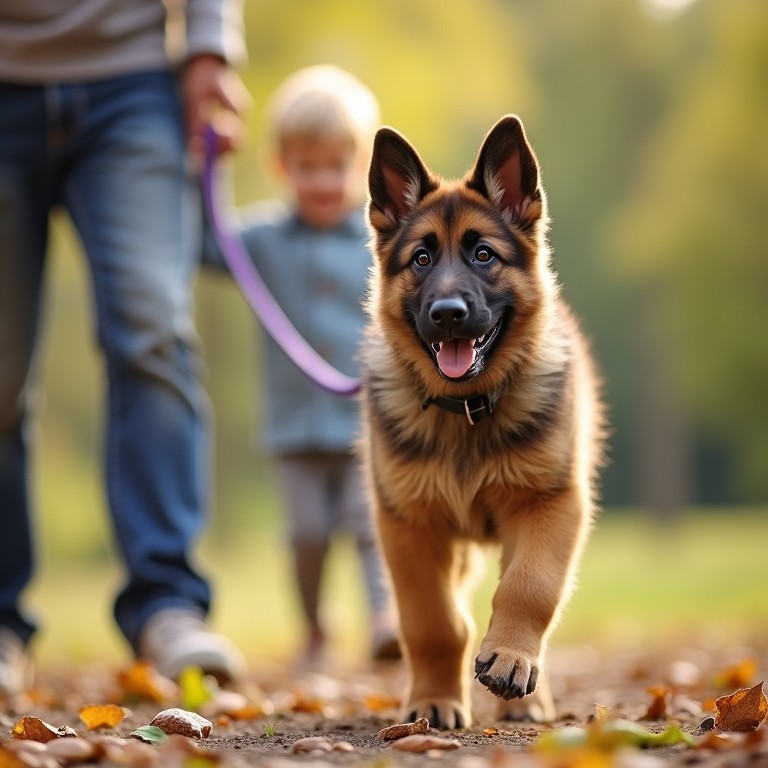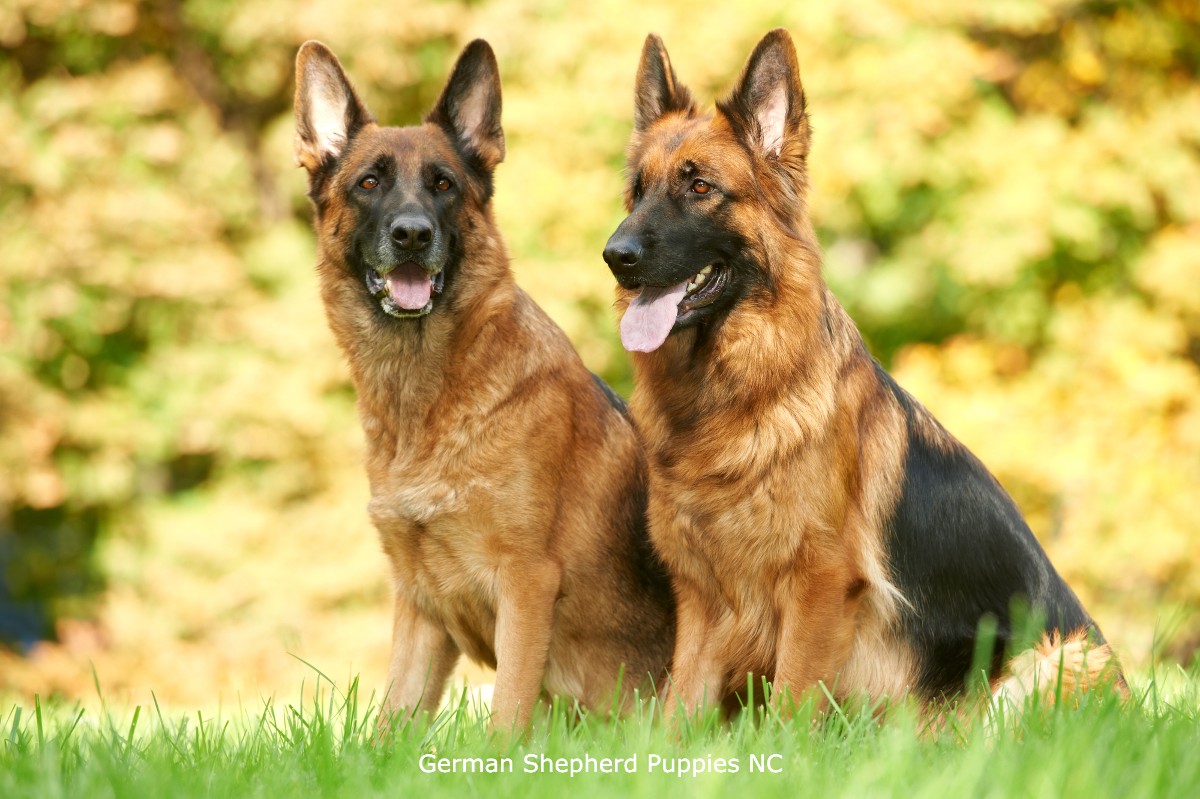German Shepherds are among the world’s most beloved dog breeds, known for their intelligence, loyalty, and versatility as both family companions and working dogs. One of the most important questions potential owners ask is about German Shepherd life expectancy and what factors influence how long these magnificent dogs live. Understanding the typical lifespan of German Shepherds and the elements that can affect their longevity is crucial for providing the best possible care throughout their lives.
The average German Shepherd life expectancy ranges from 9 to 13 years, with most dogs living around 10-11 years. However, many factors can influence this lifespan, including genetics, diet, exercise, healthcare, and overall quality of life. By understanding these factors and implementing proper care strategies, owners can help their German Shepherds live longer, healthier, and more fulfilling lives.
German Shepherd Life Expectancy: The Numbers
The German Shepherd life expectancy is considered average for large breed dogs, though it’s somewhat shorter than many smaller breeds. Several studies and breed surveys have consistently shown that German Shepherds typically live between 9 and 13 years, with the average being approximately 10-11 years.
Factors Affecting Lifespan: The variation in German Shepherd life expectancy can be attributed to several key factors including genetic health, breeding quality, lifestyle, nutrition, veterinary care, and environmental conditions. Dogs from health-tested lines with responsible breeding practices often live longer than those from puppy mills or backyard breeders.
Gender Differences: Some studies suggest that female German Shepherds may have a slightly longer average lifespan than males, though the difference is typically small. Spayed and neutered dogs also tend to live longer than intact dogs due to reduced risks of certain cancers and reproductive issues.
Size Considerations: Within the breed, smaller German Shepherds often live longer than their larger counterparts, following the general trend that smaller dogs tend to have longer lifespans than larger dogs.

Appearance: The Classic German Shepherd
German Shepherds are large, athletic dogs with a distinctive appearance that has remained relatively consistent throughout the breed’s history.
Size and Build: Adult German Shepherds typically weigh between 50-90 pounds, with males being larger than females. Males usually stand 24-26 inches tall at the shoulder, while females stand 22-24 inches tall. They have a well-balanced, rectangular build that emphasizes both strength and agility.
Coat Characteristics: German Shepherds have double coats consisting of a dense undercoat and longer outer guard hairs. The coat can be medium or long length, with the medium-length coat being more common in show lines. Common colors include black and tan, sable, solid black, and occasionally white or blue variations.
Distinctive Features: The breed is known for its erect, pointed ears, intelligent dark eyes, and noble expression. They have a slightly elongated muzzle, strong jaw, and a bushy tail that typically hangs down with a slight curve.
Movement: German Shepherds are known for their efficient, ground-covering gait. Healthy dogs move with fluid, powerful strides that demonstrate their working heritage and athletic ability.

Personality and Temperament
The German Shepherd’s personality and temperament are key factors that have made them one of the world’s most popular breeds for both family life and professional work.
Intelligence: German Shepherds rank among the most intelligent dog breeds, typically placing third in intelligence rankings. They excel at problem-solving, learning complex commands, and adapting to new situations quickly.
Loyalty and Devotion: These dogs are renowned for their unwavering loyalty to their families. They often form particularly strong bonds with one primary person while remaining devoted to all family members.
Confidence and Courage: Well-bred German Shepherds display natural confidence and courage, making them excellent protection dogs and working companions. They face challenges head-on and rarely back down from situations requiring bravery.
Versatility: German Shepherds adapt well to various roles, from family pet to police work, military service, search and rescue, therapy work, and competitive dog sports.
Work Drive: Most German Shepherds have strong work drives and thrive when given jobs to do. They need mental stimulation and purpose to remain happy and well-behaved.
Alertness: These dogs are naturally alert and aware of their surroundings, making them excellent watchdogs who will alert their families to potential threats or unusual activities.

Factors That Influence German Shepherd Life Expectancy
Understanding the factors that can impact German Shepherd life expectancy helps owners make informed decisions about care and lifestyle choices.
Genetics and Breeding: Perhaps the most significant factor affecting lifespan is the genetic health of the dog’s lineage. Dogs from health-tested parents with no history of genetic diseases typically live longer than those from unhealthy lines.
Diet and Nutrition: Proper nutrition throughout life significantly impacts longevity. High-quality diets appropriate for each life stage, maintaining proper weight, and avoiding obesity all contribute to longer lifespans.
Exercise and Activity: Regular, appropriate exercise helps maintain muscle tone, joint health, cardiovascular fitness, and mental well-being, all of which contribute to longevity.
Veterinary Care: Regular checkups, preventive care, early disease detection, and prompt treatment of health issues can significantly extend a dog’s life.
Environmental Factors: A safe, stress-free environment with minimal exposure to toxins, extreme weather, or dangerous situations supports longer life expectancy.
Mental Stimulation: Keeping the mind active and engaged throughout life may help prevent cognitive decline and contribute to overall well-being in senior years.

Common Health Issues Affecting Life Expectancy
Several health conditions can impact German Shepherd life expectancy, making awareness and prevention crucial for owners.
Hip and Elbow Dysplasia: These joint conditions are common in German Shepherds and can significantly impact quality of life if severe. Early detection and management can help dogs live comfortably longer.
Degenerative Myelopathy: This progressive spinal cord disease affects many German Shepherds in their later years. While not immediately life-threatening, it can severely impact quality of life.
Bloat (Gastric Dilatation-Volvulus): This life-threatening emergency can be fatal if not treated immediately. Prevention strategies and awareness of symptoms are crucial.
Heart Disease: Various cardiac conditions can affect German Shepherds, including dilated cardiomyopathy and congenital heart defects.
Cancer: Like many large breeds, German Shepherds can be prone to various cancers, including hemangiosarcoma and osteosarcoma.
Epilepsy: Seizure disorders can affect quality of life, though many dogs with epilepsy can live normal lifespans with proper management.

Grooming Requirements
Proper grooming contributes to overall health and can help detect health issues early, potentially impacting life expectancy.
Daily Brushing: German Shepherds require daily brushing to manage their heavy shedding and prevent matting. Regular brushing also allows owners to check for skin issues, lumps, or parasites.
Seasonal Coat Care: These dogs “blow” their coats twice yearly, requiring extra grooming attention during these periods to manage the heavy shedding.
Bathing: Bathe German Shepherds every 6-8 weeks or as needed. Over-bathing can strip natural oils and cause skin problems.
Nail Maintenance: Keep nails trimmed every 2-3 weeks to prevent overgrowth, splitting, and discomfort that could affect mobility.
Ear Care: Clean ears weekly to prevent infections that could impact hearing and overall comfort.
Dental Hygiene: Regular teeth brushing and dental care help prevent periodontal disease, which can affect overall health and longevity.

Care Throughout the Lifespan
Providing appropriate care throughout each life stage helps maximize German Shepherd life expectancy.
Puppyhood (0-18 months): Focus on proper nutrition for growth, early socialization, basic training, and establishing healthy routines. Avoid over-exercising growing joints.
Young Adult (18 months – 3 years): Continue training, provide adequate exercise and mental stimulation, maintain preventive veterinary care, and monitor for any developing health issues.
Adult (3-7 years): Maintain regular exercise routines, monitor weight, continue preventive care, and watch for early signs of common breed health issues.
Senior (7+ years): Increase veterinary monitoring, adjust exercise as needed, consider senior diet formulations, and focus on comfort and quality of life management.
Geriatric (10+ years): Provide supportive care for aging issues, manage any chronic conditions, ensure comfort, and make quality of life the primary focus.

Nutrition and Feeding
Proper nutrition throughout life is one of the most important factors in maximizing German Shepherd life expectancy.
Life Stage Nutrition: Feed appropriate formulations for each life stage – puppy food for growth, adult maintenance for mature dogs, and senior formulas for older dogs.
Quality Ingredients: Choose high-quality foods with named protein sources, appropriate fat levels, and minimal fillers or artificial additives.
Weight Management: Maintain proper body weight throughout life. Obesity significantly shortens lifespan and increases disease risk.
Portion Control: Feed measured portions twice daily rather than free-feeding to maintain healthy weight and prevent bloat.
Special Dietary Needs: Address any food allergies, sensitivities, or health conditions with appropriate dietary modifications.
Supplements: Consider joint supplements, omega fatty acids, or other veterinarian-recommended supplements to support long-term health.

Exercise Throughout the Lifespan
Appropriate exercise is crucial for maintaining health and maximizing German Shepherd life expectancy.
Puppy Exercise: Provide age-appropriate exercise that doesn’t stress developing joints. Short, frequent play sessions are ideal for young puppies.
Adult Exercise Needs: Adult German Shepherds need 2-3 hours of exercise daily, including walks, runs, play time, and mental stimulation activities.
Senior Exercise Adjustments: Modify exercise routines as dogs age, focusing on gentler activities that maintain mobility without causing stress or pain.
Mental Exercise: Provide mental stimulation throughout life through training, puzzle toys, and problem-solving activities to maintain cognitive function.
Consistency: Maintain regular exercise routines to support cardiovascular health, muscle tone, and mental well-being.

Maximizing German Shepherd Life Expectancy
Several strategies can help owners maximize their German Shepherd’s life expectancy and quality of life.
Choose Healthy Breeding: Start with a puppy from health-tested parents and reputable breeders who prioritize longevity and health over appearance alone.
Preventive Veterinary Care: Maintain regular checkups, vaccinations, parasite prevention, and early health screening to catch problems before they become serious.
Maintain Healthy Weight: Keep your dog at an optimal weight throughout life to reduce stress on joints and organs.
Provide Mental Stimulation: Keep the mind active and engaged throughout life to maintain cognitive function and prevent boredom-related problems.
Create a Safe Environment: Minimize exposure to toxins, dangerous situations, and excessive stress that could impact health and longevity.
Monitor for Changes: Stay alert to changes in behavior, appetite, energy levels, or physical condition that might indicate developing health issues.

Training for Longevity
Proper training throughout life contributes to safety and can impact German Shepherd life expectancy.
Basic Obedience: Strong recall, leash manners, and basic commands help keep dogs safe in various situations throughout their lives.
Socialization: Well-socialized dogs experience less stress and are safer in various situations, contributing to longer, happier lives.
Impulse Control: Teaching self-control helps prevent dangerous behaviors and reduces stress-related health issues.
Cooperative Care: Train dogs to accept handling, grooming, and veterinary procedures calmly to ensure they receive necessary care throughout life.
Mental Enrichment: Use training as mental exercise to keep minds sharp and engaged throughout the aging process.

Pros of German Shepherd Ownership
Exceptional Loyalty: German Shepherds form incredibly strong bonds with their families and remain devoted throughout their lives.
High Intelligence: Their intelligence makes them highly trainable and adaptable to various family situations and activities.
Versatility: These dogs excel in multiple roles from family companion to working dog, therapy dog, or sport competitor.
Natural Protection: They provide excellent security and protection for families while being gentle with family members.
Active Lifestyle Companions: Perfect for families who enjoy outdoor activities, hiking, running, and active lifestyles.
Trainability: Their eagerness to please and intelligence make them excellent candidates for various types of training.
Strong Work Ethic: They thrive on having jobs to do and purpose in their lives, making them engaged family members.

Cons of German Shepherd Ownership
Shorter Lifespan: The 9-13 year life expectancy means saying goodbye sooner than with many smaller breeds.
Health Concerns: Prone to several genetic health issues that can be expensive to manage and may impact quality of life.
High Exercise Needs: Require significant daily exercise and mental stimulation that may not suit all lifestyles.
Heavy Shedding: Year-round shedding with seasonal “coat blows” requires significant grooming commitment.
Size and Strength: Large, powerful dogs require experienced handling and proper training for safety.
Potential Behavioral Issues: Can develop destructive behaviors if not properly exercised and mentally stimulated.
Higher Costs: Large dogs have higher costs for food, veterinary care, medications, and supplies.

Are German Shepherds Good with Kids?
German Shepherds can be excellent family dogs and wonderful with children when properly socialized and trained throughout their lives.
Natural Protectiveness: German Shepherds often develop strong protective instincts toward children in their family, becoming devoted guardians and companions.
Gentle Nature: Despite their size and strength, well-socialized German Shepherds can be remarkably gentle with children, often seeming to understand their vulnerability.
Loyalty to Family: Their strong family bonds mean they typically include children as important family members worthy of protection and companionship.
Intelligence Benefits: Their high intelligence allows them to learn appropriate behavior around children and understand different rules for different situations.
Energy Match: Active children who enjoy outdoor play often make excellent companions for energetic German Shepherds.
Teaching Opportunities: These intelligent, trainable dogs provide excellent opportunities to teach children about responsibility, empathy, and animal care.
Supervision Importance: Due to their size, interactions with very young children should always be supervised to prevent accidental injuries.
Training Requirements: Success with children requires consistent training to ensure appropriate behavior and boundaries are maintained.

Senior Care and End-of-Life Considerations
Understanding how to care for aging German Shepherds helps maximize their comfort and quality of life in their later years.
Regular Health Monitoring: Increase veterinary checkups to twice yearly for dogs over 7 years to catch age-related issues early.
Comfort Modifications: Provide orthopedic bedding, ramps, and other modifications to help aging dogs remain comfortable and mobile.
Pain Management: Work with veterinarians to manage arthritis and other age-related pain to maintain quality of life.
Dietary Adjustments: Senior dogs may benefit from easier-to-digest foods, weight management diets, or therapeutic formulations.
Mental Health: Continue providing mental stimulation appropriate for senior dogs to maintain cognitive function.
Quality of Life Assessment: Regularly evaluate your dog’s quality of life and be prepared to make difficult decisions when necessary.

The Importance of Responsible Breeding
Choosing a puppy from responsible breeders significantly impacts German Shepherd life expectancy and overall health.
Health Testing: Reputable breeders test breeding dogs for hip dysplasia, elbow dysplasia, degenerative myelopathy, and other genetic conditions.
Longevity Focus: Quality breeders prioritize breeding for health and longevity rather than focusing solely on appearance or profit.
Genetic Diversity: Responsible breeding practices help maintain genetic diversity and reduce the risk of inherited health problems.
Early Care: Good breeders provide proper early care, socialization, and health screening that sets puppies up for longer, healthier lives.
We here at German Shepherd Puppies NC take great pride in breeding the best German Shepherd puppies in all of North Carolina. As North Carolina’s premier German Shepherd experts, German Shepherd Puppies NC has been breeding award-winning AKC quality German Shepherd puppies since 1991. Whether you’re looking for black German Shepherd puppies, white puppies, blue puppies, sable puppies, or long-haired puppies, we have the expertise and commitment to excellence that ensures each puppy is raised with proper socialization, health screening, and the foundation for a long, healthy life.
Our decades of experience in breeding German Shepherds gives us unique insights into maximizing health and longevity in our breeding lines. We conduct comprehensive health testing on all breeding dogs and focus on producing puppies with the genetic foundation for extended life expectancy.

Making the Most of Your Time Together
Understanding German Shepherd life expectancy helps owners make the most of their time with these wonderful dogs.
Create Memories: Take advantage of your dog’s active years to create lasting memories through adventures, training achievements, and special experiences.
Document the Journey: Keep photos and records of your dog’s life to preserve memories of your time together.
Enjoy Each Stage: Appreciate the unique joys and characteristics of each life stage from playful puppy to wise senior.
Build Strong Bonds: Invest time in training, activities, and bonding experiences that strengthen your relationship.
Prepare for the Future: Understanding the typical lifespan helps owners prepare emotionally and financially for their dog’s care throughout life.

Conclusion
German Shepherd life expectancy of 9-13 years represents a meaningful but relatively short time to share with these extraordinary dogs. While we cannot control all factors that influence longevity, responsible ownership, proper care, quality breeding, and preventive health measures can help ensure German Shepherds live the longest, healthiest, and happiest lives possible.
Understanding the factors that influence lifespan empowers owners to make informed decisions about care, lifestyle, and health management throughout their dog’s life. From choosing a healthy puppy from responsible breeders to providing excellent care throughout all life stages, every decision can contribute to maximizing both the length and quality of your German Shepherd’s life.
For those considering adding a German Shepherd to their family, working with experienced, reputable breeders who prioritize health and longevity is essential. If you would like to request a German Shepherd puppy, please contact us as we here at German Shepherd Puppies NC would be glad to help you find a healthy puppy with the genetic foundation for a long, wonderful life. If you are looking for German Shepherd puppies for sale near me, then look no further than German Shepherd Puppies NC. Our commitment to excellence in breeding, combined with our understanding of factors that influence German Shepherd life expectancy, ensures that you’ll receive a puppy that’s been properly prepared for a lifetime of health and happiness as your family companion.













Our Social Media Channels